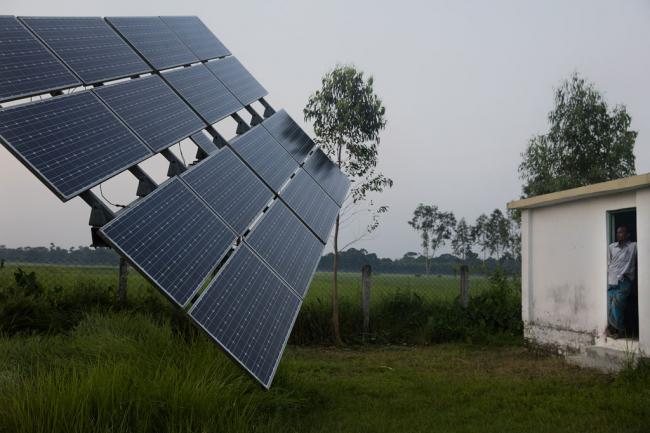
With access to clean, modern energy, poorer countries look to power ahead through innovation – UN report
New York, Nov 23(Just Earth News): Energy is key to global development, but the world’s poorest and most vulnerable nations fare up to six times worse than their more industrialized counterparts when it comes to accessing the vital resource, the United Nations warned on Wednesday.
In its 2017 report on the world’s 47 Least Developed Countries (LDCs), focused on Transformational Energy Access the UN Conference on Trade and Development (UNCTAD) said that only four of them were on course to achieve internationally agreed targets on energy distribution by 2030.
While they have made great strides in recent years, achieving the global goal of universal access to energy by 2030, the finish line for achieving the UN Sustainable Development Goals (SDGs), will require a 350 per cent increase in their annual rate of electrification, said UNCTAD.
“Achieving Sustainable Development Goal 7 is not only a question of satisfying households’ basic energy needs,” UNCTAD Secretary-General Mukhisa Kituyi said in Geneva, ahead of the report’s publication on Tuesday.
“That in itself has valuable welfare implications, but we need to go beyond […] For electrification to transform LDC economies, modern energy provision needs to spur productivity increases and unlock the production of more goods and services.”
Dr. Kituyi added: “The productive use of energy is what turns access into economic development, and what ensures that investments in electricity infrastructure are economically viable. But that means looking beyond satisfying households basic needs to achieving transformational energy access – satisfying producers’ needs for adequate, reliable and affordable energy.”
To that end, the report notes that renewable energy sources, such as solar and wind power, could have a revolutionary effect in rural areas, home to 82 per cent of those without power in the least developed countries, and help to overcome the historical obstacles to rural electrification.
But non-hydro renewable energy in these countries has so far come mostly from small-scale technologies, such as solar lanterns and stand-alone home systeWhile these have brought some progress, they fall short of the game-changing access to power that they need to transform their economies.
Utility-scale renewable technologies capable of feeding the grids and mini-grids necessary not only to power homes, but also to grow businesses and industries, need to be deployed rapidly. But to achieve this, the least developed countries must overcome important technological, economic and institutional obstacles. This will require both the right national policies and stronger international support.
Because energy technologies, and particularly renewable technologies, are constantly evolving, it is critical that the least developed countries gain access to the technologies suited to their particular conditions and circumstances, and that they strengthen the capacity of their energy sectors to absorb such technologies.
The recently created Technology Bank for the Least Developed Countries could help, but developed countries could help even more by living up to their technology-transfer obligations under the UN Framework Convention on Climate Change (UNFCCC) and the Kyoto Protocol, said UNCTAD.
Photo: Dominic Chavez/World Bank
Source: www.justearthnews.com
Support Our Journalism
We cannot do without you.. your contribution supports unbiased journalism
IBNS is not driven by any ism- not wokeism, not racism, not skewed secularism, not hyper right-wing or left liberal ideals, nor by any hardline religious beliefs or hyper nationalism. We want to serve you good old objective news, as they are. We do not judge or preach. We let people decide for themselves. We only try to present factual and well-sourced news.







